What’s Really Happening in Messinia?
The Olympic elite, Hollywood’s finest, the...
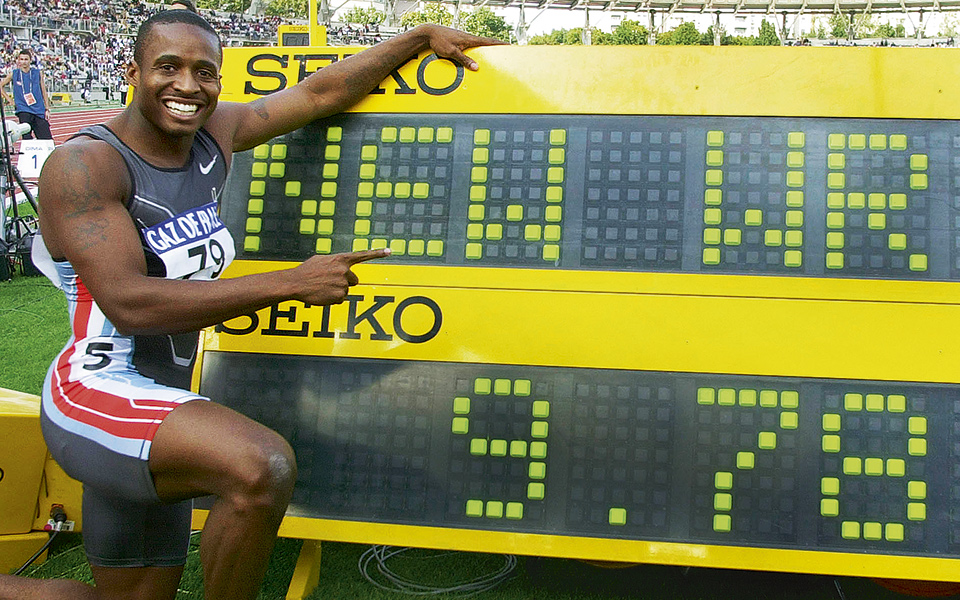
Tim Montgomery, a central figure of the infamous BALCO doping scandal.
© AP Photos
Tickets for the 200m final at the 2004 Athens Olympics were the first to sell out. “Let’s go and watch Kenteris win, and hear the national anthem,” said Greek sports fans, eager to celebrate their national pride.
Kostas Kenteris was an Olympic medalist, a world champion and a paragon of Greek sport in the five years preceding the Games. But when the finalists of the big race stood on the podium, he was not among them. The 31-year-old champion had fallen from grace on the eve of the opening ceremony, when – together with the equally popular sprinter Katerina Thanou – he had been forced to hand in his credentials after falling off his motorcycle in an accident that, as suggested by International Olympic Committee (IOC) officials in off-the-record talks, might have been staged by the pair to avoid a doping test. Kenteris had been chosen to light the Olympic Flame (the greatest of honors), but was replaced when the scandal broke out.
Back at the Olympic Stadium, the Greek fans that had paid a small fortune for their tickets to the final reacted to his ouster in a manner that made the guardians of sports ethics blush: The spectators applauded the absent Kenteris and derided the eight ‘clean’ athletes vying for the top spots with a chorus of boos. The message behind their disapprobation was loud and clear: “Everyone does it, everyone takes performance-enhancing drugs, but poor little Greece is alone in paying the price.”
Other Greek sports heroes of the time were subsequently knocked off their pedestals as more and more cases of doping came to light in the years that followed, but this was a drop in the ocean compared to the massive crackdown on foreign Olympians by international and national oversight bodies in the US, Great Britain, Russia, Spain, China and elsewhere.
The world’s greatest female sprinter, Marion Jones, was tried and jailed, while cycling legend Lance Armstrong was humiliated and driven to bankruptcy. Dozens more world-famous athletes were punished with lengthy or even lifetime bans for doping violations or for refusing to cooperate with authorities; and sportswear companies were forced to cancel sponsorship contracts worth millions of dollars.
But Kenteris’ compatriots continued to believe that “poor little Greece” had been unfairly punished by the big bad foreigners. Greeks rarely let the truth spoil their romantic patriotic narratives.
“The race for records and medals has grown into a multi-billion-dollar industry so formidable that any talk of sports ethics pales into insignificance.”
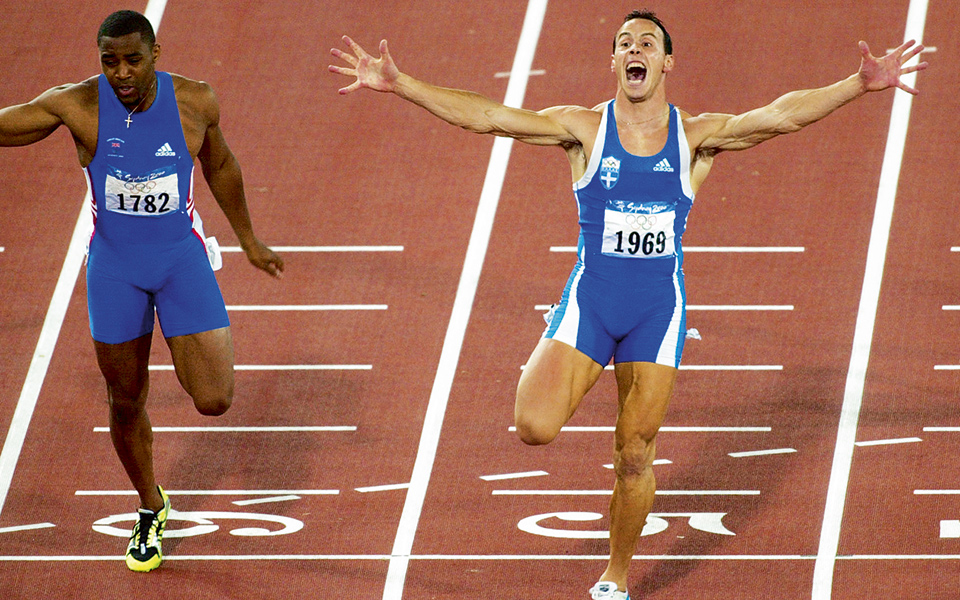
Kostas Kenteris triumphed in Sydney in 2000, but never ran in Athens in 2004.
© AFP
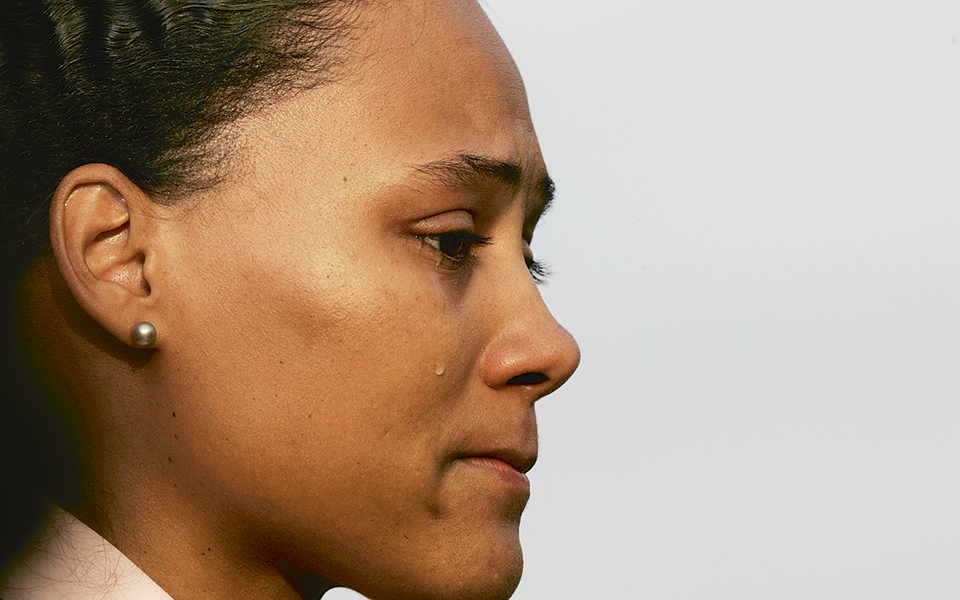
Marion Jones publicly confessed to doping and tearfully apologized, but was sentenced to six months in prison
© AP Photos
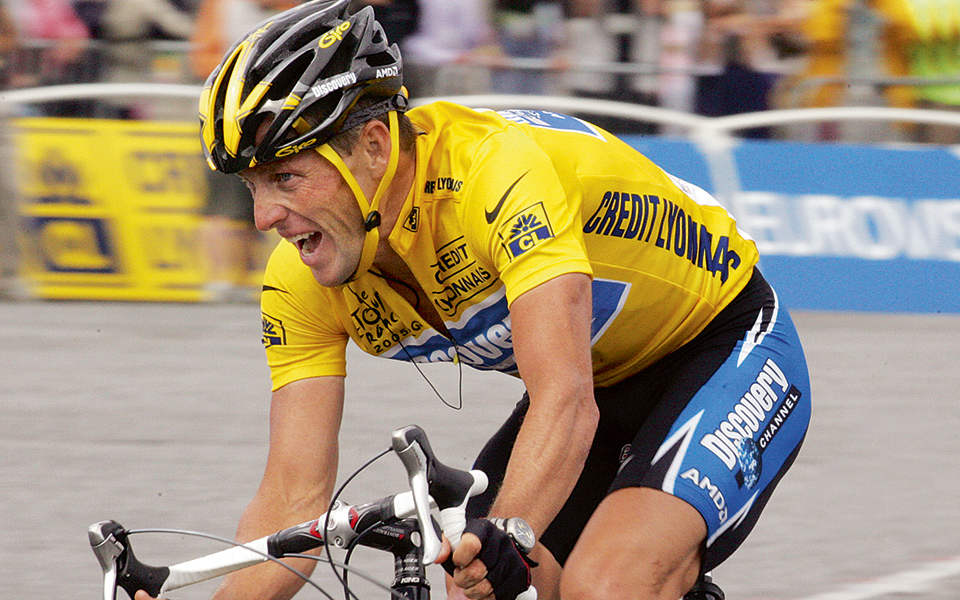
Cycling legend Lance Armstrong was stripped of multiple titles due to doping.
© AFP
Yet the problem is much bigger and more far-reaching than the selective voluntary blindness of the public in any given country. The race for records and medals has grown into a multi-billion-dollar industry so formidable that any talk of sports ethics pales into insignificance.
Hidden between the lines of the regulations laid down by the IOC and the World Anti-Doping Agency (WADA) there appears to be an unwritten yet inviolable law that demands leniency towards Games organizers – so long as they keep up appearances.
Britain’s medal tally jumped from 47 in Beijing to 65 in London. The Chinese won 100 medals when they held the Olympics, compared to 63 at the previous event. South Korea nearly doubled its harvest when the Games went to Seoul, and Australia could never in its wildest dreams have hoped for the 58 medals it earned in Sydney in 2000. On the other hand, Greece dropped from 16 medals at the much-praised Athens Games to just four in Beijing and two in London. Previously, it had taken a full 80 years (1912-1992) for the country to garner a mere 16 medals in total.
The explanation for this striking success of the host clearly has nothing to do with home advantage. Distinction on the sports field translates into enhanced status of the host nation, making it more attractive to investors, businessmen, even tourists. China and South Korea were compensated with fresh western currency for the money they spent. Barcelona shed years of reclusiveness to become a global tourism metropolis after the success of the 1992 Games. Sydney advertised itself as a humane city, which could organize an Olympiad without bringing chaos to everyday life.
In other cities, of course, the Games had a negative impact. No one, for example, was impressed by the blatant commercialization introduced by the Americans in Los Angeles in 1984 and Atlanta in 1996, and few showed tolerance for the fact that the Greeks had succumbed to the sirens of doping.
In Greece’s case, there was never any irrefutable evidence of official involvement in doping, just very strong indications. Twelve years after the Athens Games, meanwhile, a scandal has erupted in the east of Europe that is reminding the world that the ignominious reign of the East Germans and the Soviets is not that far behind us.
“Surprisingly, perhaps, the Olympics are but a footnote to the world of classical athletics, at least in terms of their commercial value.”
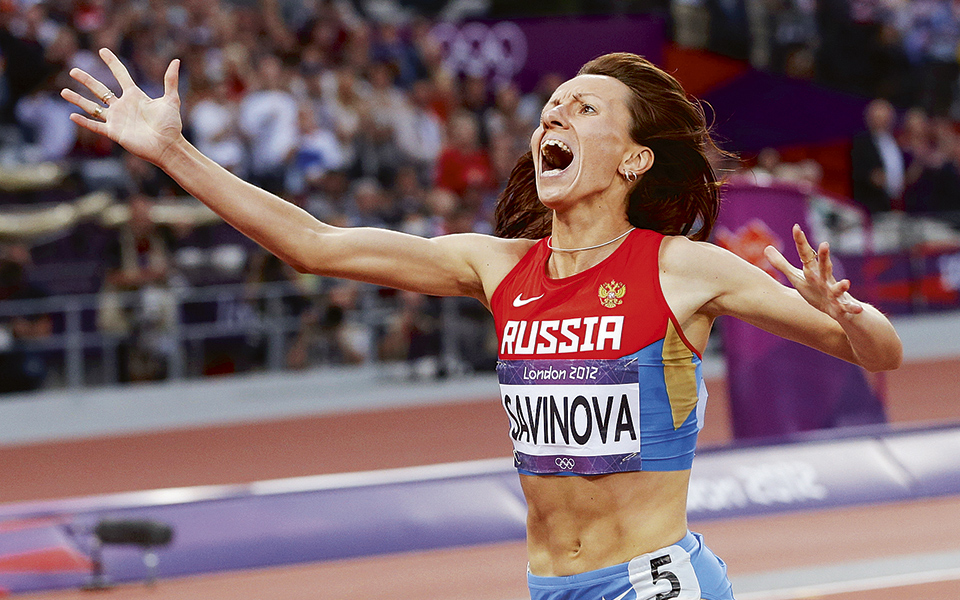
Russian track and field athletes such as London 800m champion Maria Savinova were disqualified from Rio.
© AP Photos
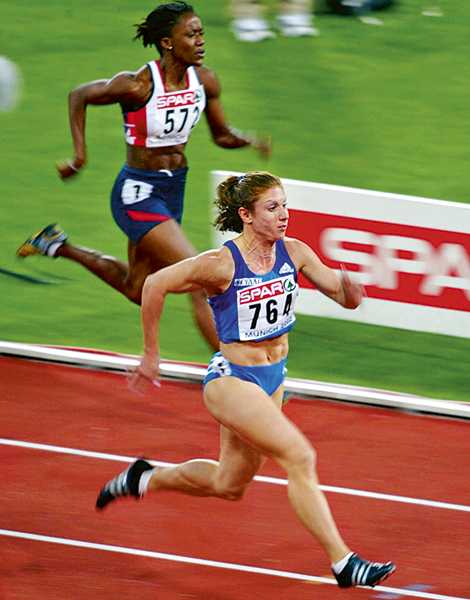
Katerina Thanou took silver in 2000, but did not compete in Athens 2004.
© AFP
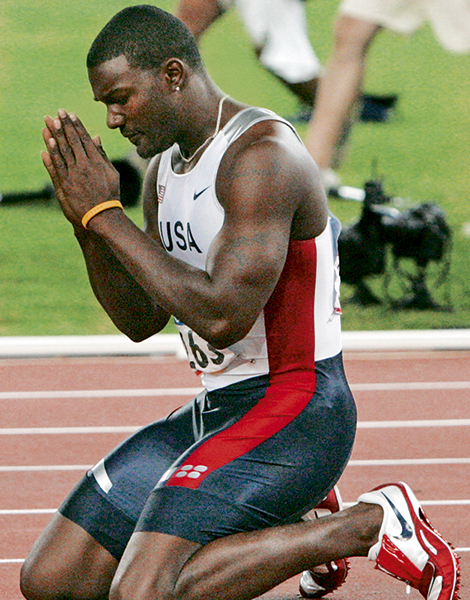
2004: 100m Olympic gold medallist Justin Gatlin later incurred a four-year ban
© AFP
Russian middle-distance champion Yuliya Stepanova turned whistleblower and helped prove beyond a shadow of a doubt the complicity of her country’s authorities in the systematic doping of thousands of Russian champions. The International Association of Athletics Federations (IAAF) disqualified the Russian track and field athletes from the Rio Games, but the IOC rejected the blanket ban and, in a tawdry display of petty politics, hit the ball back into the court of the less powerful federations representing each individual sport. By banning approximately one third of the Russian athletes, and not all of them, the Olympic movement ultimately chose not to butt heads with the Russian establishment.
In any case, moral victories carry little weight in a world ruled by the dollar sign. After all, “everyone’s doing it, but only the weak pay the price,” right? And the Muscovite bear wears very expensive running shoes and is by no means small fry.
Surprisingly, perhaps, the Olympics are but a footnote to the world of classical athletics, at least in terms of their commercial value. As far as the wealthy markets of Europe and America are concerned, an event held once every four years in an often ‘inconvenient’ time zone is nothing to get excited about. In contrast, the attention – and budgets – of sponsors and sportswear firms is firmly focused on the Diamond League, where no one even pretends to be a so-called amateur. Winners of the “Diamond Race” (such as Greek pole-vaulter Katerina Stefanidi, who already has victory in the bag) are rewarded with $40,000 at the end of the season. In addition, at each of the 14 meetings, and for each of the 16 “Diamond Race” disciplines per meeting, athletes receive varying amounts of prize money depending on their position ($10,000 for first place, $6,000 for second, $4,000 for third and so on.)
Each world record, such as the one set recently by America’s Kendra Harrison in the 100m hurdles, is rewarded not just with a cash prize, but also with sundry gifts of smaller or greater value from both local and international sponsors. Even the IAAF, which used to turn up its nose at professional competition, advertised at the start of this season that it would distribute “profits of $8 million” among athletes. The first tournament of the season took place in Qatar, which, in the meantime, is facing some tough questions about the methods it used to secure the 2022 FIFA World Cup.
The IOC and WADA continue to assert their steadfast commitment to the war against illegal performance-enhancing substances. But who will compensate investors if – by some act of chance – the sprinting super-champion and eight-time Olympic gold medalist Usain Bolt tests positive in Rio?
“Moral victories against doping carry little weight in a world ruled by the dollar sign. After all, “everyone’s doing it, but only the weak pay the price,” right?”
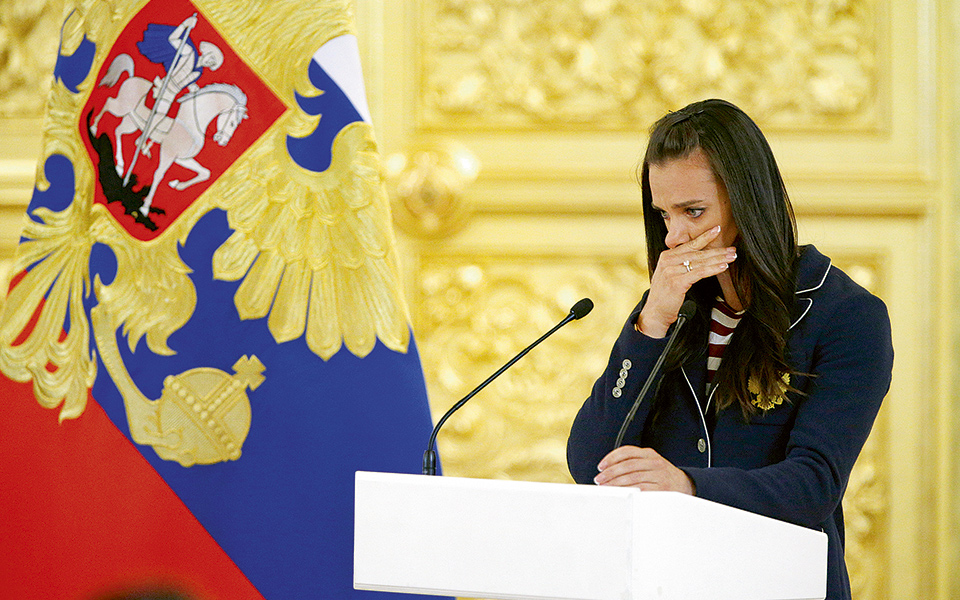
Yelena Isinbayeva shedding tears over the recent ban of doped Russians.
© AP Photos
In high-profile cases that rock the entire structure – as, for example, when Olympic champion Ben Johnson tested positive in 1988 – moral victories mean little if anything at all. There are no winners or losers in this particular war, simply because the more winners you have, the greater the profits reaped.
The gold in this ongoing cynicism contest, however, must go to the man responsible for the “miracle” of Greek weightlifting before he was ostracized for allegedly pioneering the grand scandal of 2008.
“I recommend that all the athletes are locked up in the Olympic Village 50 or 60 days before the Games and given the exact same supplements. I’m not suggesting illegal substances, but the same thing for everyone,” Christos Iakovou, the coach behind some of the country’s greatest successes, said in a recent interview. “That is the only way to find out who the better athlete is and who the better coach.”
On the flipside of all this sordidness, however, the Olympiad of the romantics does live on; cynicism does not always prevail. Beside the race for procurements, you will see honest competition from the shooter from Namibia, the racewalker from Paraguay, the Palestinian wrestler, the swimmer from Vanuatu, the Nepalese archer and the rower from Iceland. And beside them, obscure among the famous and virtually shunned by the drugged-up brotherhood and sisterhood, you will find athletes who steadfastly reject doping and remain focused only on their personal performance, for there certainly appears to be one performance for “dirty” athletes and another for “clean” ones.
Honorable competition is one side of the Games, performance-enhancing drugs is the other. And it is these incorruptible athletes who continue to keep the aura of the Olympics pure and fresh, and the beleaguered flag of rings clean of mud.
“There are no winners or losers in this particular war, simply because the more winners you have, the greater the profits reaped.”
Nikos Papadojannis has been a sports journalist since 1987 and specializes in basketball and the Olympic Games, having covered four Olympics in his career.